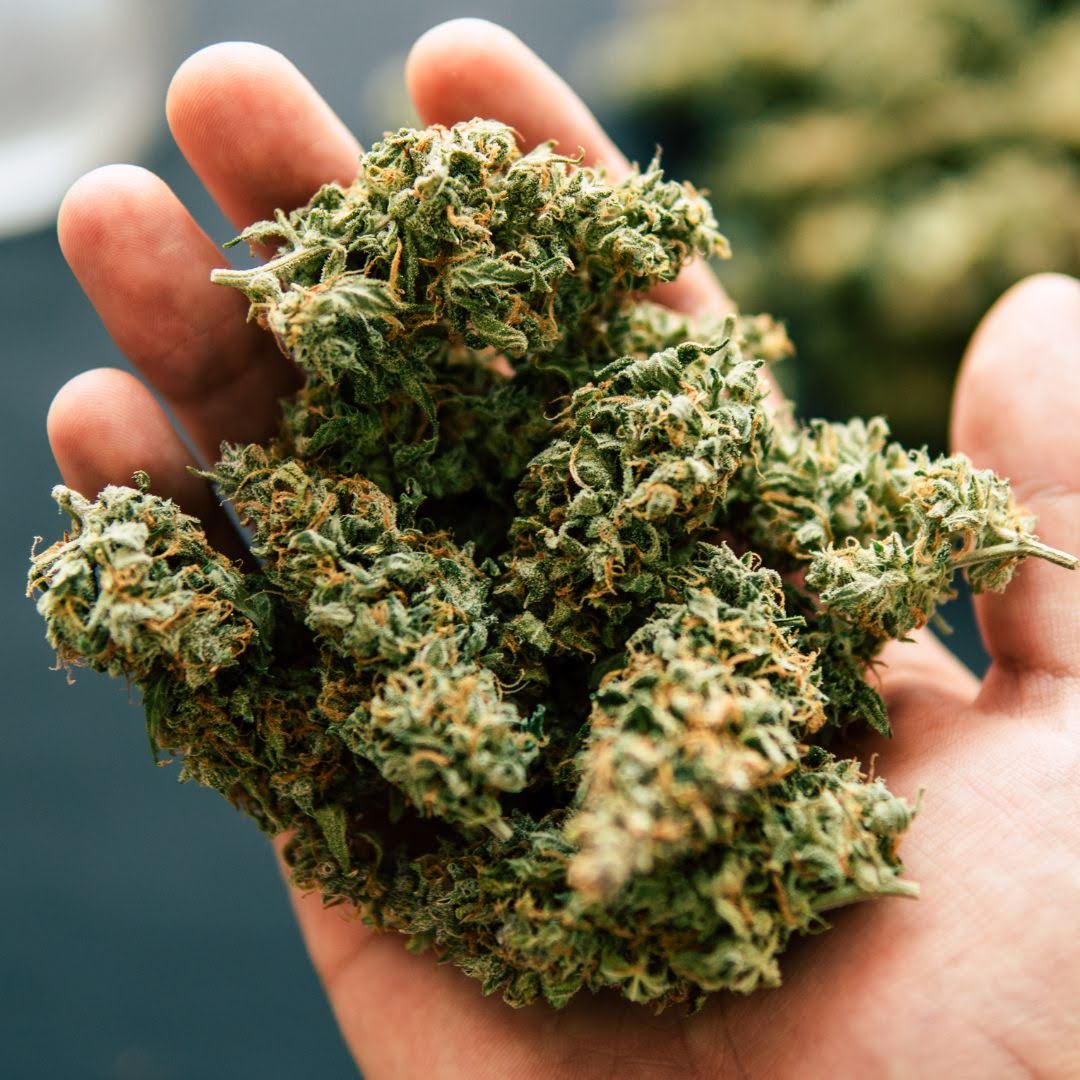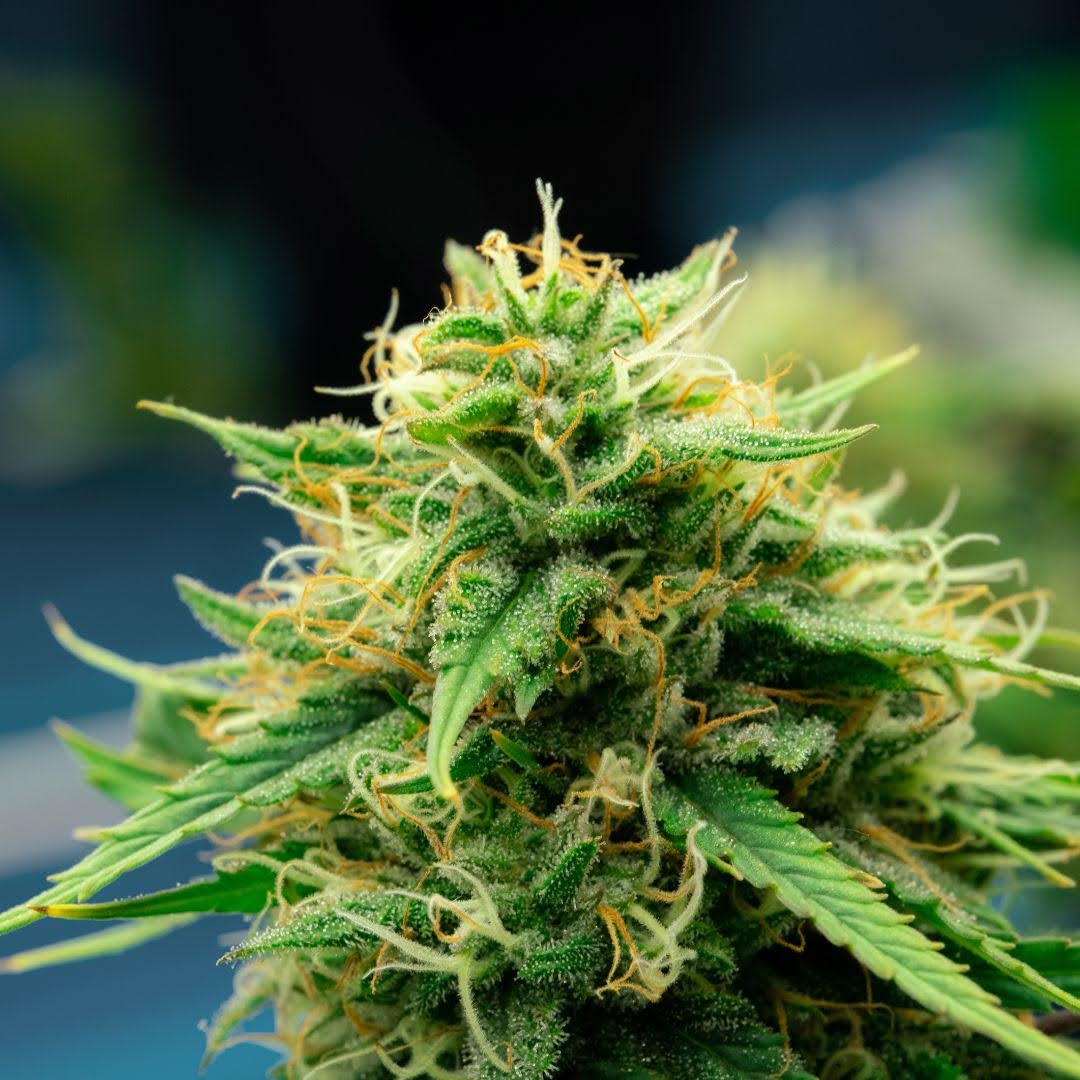Key Takeaways:
- Non-Psychoactive Benefits: THCA provides anti-inflammatory benefits without the psychoactive effects associated with THC, making it suitable for daily use without impairing cognitive functions.
- Legal and Safe Use: While THCA's legal status varies by state, it is generally available where medical cannabis is legal, offering a safe alternative to traditional anti-inflammatory drugs.
- Diverse Applications: THCA is beneficial for various conditions, including chronic inflammation, neuroinflammatory disorders, and gastrointestinal issues, and can be used in several forms such as tinctures, oils, and capsules.
Chill Frog CBD leads the way in cannabinoid research, focusing on the benefits of Tetrahydrocannabinolic acid (THCA). Unlike THC, THCA does not produce psychoactive effects but offers anti-inflammatory benefits.
This article explores THCA's mechanism of action, and its specific health benefits, and identifies the groups most likely to gain from its use. We aim to provide clear, actionable information to help you consider THCA for your health regimen.
Explore natural wellness with Chill Frog CBD's range of high-quality CBD products. Perfect for your health-focused lifestyle.

Understanding THCA
What Is THCA?
THCA, or Tetrahydrocannabinolic acid, is a cannabinoid found in fresh cannabis that has not been dried or heated. It is the acidic precursor to THC, which is known for its psychoactive effects. THCA itself does not affect the mind like THC because it does not bind well to the same receptors in the brain. It is primarily recognized for its potential in medical applications, particularly due to its anti-inflammatory properties. Utilizing THCA involves using raw cannabis in various forms, including juicing the leaves or consuming it as tinctures.
Chemical Properties And Stability Of THCA
THCA is unstable and converts to THC when exposed to heat, a process known as decarboxylation. Its molecular structure includes an additional carboxyl group that prevents it from binding easily to cannabinoid receptors, which is why it does not produce a high. THCA is soluble in fats and alcohols but not in water, which is crucial for its extraction and formulation into products. Stability is a significant concern during extraction, as improper handling can lead to premature conversion to THC. Manufacturers need to use precise methods to preserve THCA's therapeutic qualities during product formulation.
How Does THCA Work For Inflammation?
THCA helps to manage inflammation by inhibiting the production of inflammatory mediators in the body. Its action mechanism involves non-psychoactive pathways, which makes it an attractive alternative to traditional anti-inflammatory drugs. THCA's effectiveness in reducing inflammation without significant side effects is supported by emerging research. This cannabinoid could be particularly beneficial for individuals seeking alternatives to NSAIDs, which can have detrimental effects on the liver and gastrointestinal tract. As research continues, THCA's role in inflammation management is becoming clearer, indicating its potential as a valuable therapeutic agent.
Benefits Of THCA For Inflammation
Efficacy In Chronic Conditions
THCA has shown significant benefits in managing chronic inflammatory conditions such as rheumatoid arthritis and Crohn's disease. It reduces inflammation and associated pain, which can enhance mobility and overall quality of life for sufferers. Unlike THC, THCA does not impair cognitive functions, which makes it suitable for use during daily activities. Patients report fewer side effects compared to traditional medications. This makes THCA a compelling option for long-term management of chronic conditions.
Potential In Neuroinflammatory Disorders
THCA may also benefit patients with neuroinflammatory disorders like multiple sclerosis and Parkinson's disease. Its anti-inflammatory effects can help reduce neuronal damage and slow disease progression. The ability of THCA to modulate immune responses without psychoactive effects makes it suitable for long-term use in managing neuroinflammation. Ongoing studies are exploring how THCA can be integrated into treatment plans for neurodegenerative diseases. Its safety profile enhances its potential as a therapeutic option in neurology.
Advantages Over NSAIDs
THCA offers a safer alternative to NSAIDs, which are commonly prescribed for inflammation but can cause gastrointestinal and hepatic issues. It provides comparable anti-inflammatory benefits without the adverse side effects associated with long-term NSAID use. THCA's non-psychoactive nature allows it to be used by a broader range of patients, including those sensitive to the effects of traditional medications. It is especially useful for individuals who require ongoing inflammation management. The increasing interest in THCA is due to its potential to offer effective relief with minimal risks.
Who Can Benefit From THCA?
Individuals With Joint Pain
People with joint pain, especially arthritis patients, find THCA beneficial in managing symptoms. It reduces pain and inflammation, improving joint function and enhancing daily activities. Because THCA is non-psychoactive, it is an attractive option for patients needing relief without the high associated with THC. This makes it particularly valuable for elderly patients or those requiring clear cognitive function. The therapeutic properties of THCA allow for better management of conditions that impair mobility and quality of life.
Athletes Looking For Recovery Solutions
Athletes can use THCA as part of their recovery process to reduce inflammation and muscle soreness. Its anti-inflammatory properties help speed up recovery, allowing athletes to return to training quickly. THCA's non-psychoactive nature ensures that using it does not contravene sports doping regulations. It is practical for regular use, helping athletes manage pain and inflammation from physical exertion. This cannabinoid is becoming a popular choice in sports medicine for its effectiveness and safety.
People With Gastrointestinal Issues
THCA has shown promise in helping individuals with inflammatory bowel diseases like Crohn’s and ulcerative colitis. It reduces inflammation in the gastrointestinal tract, alleviating symptoms like pain and diarrhea. Patients using THCA report improved gastrointestinal health and a reduction in flare-ups. This benefit is particularly important for those who have not responded well to other treatments. THCA provides a potential alternative with fewer side effects compared to conventional medications.
How To Use THCA For Inflammation?
Forms Of THCA Available
THCA is available in several forms, including raw cannabis, tinctures, oils, and capsules. Each form suits different preferences and medical needs. Raw cannabis can be used in smoothies or salads to take advantage of THCA without heating. Tinctures and oils allow for precise dosing, making them ideal for consistent treatment regimens. Capsules offer convenience and discretion for daily use.
Recommended Dosages
The correct dosage of THCA varies based on individual health needs and the form of the product. Starting with a low dose and gradually adjusting is recommended to achieve optimal results. A healthcare provider familiar with cannabis products can guide dosing. Proper dosing is crucial for effectiveness and to avoid potential side effects. Patients should follow dosing recommendations carefully to gain the maximum benefit from THCA.
Methods Of Consumption
The method of consuming THCA significantly impacts its effectiveness. Topical applications target specific areas of inflammation and are suitable for localized pain. Oral ingestion provides systemic effects, beneficial for chronic conditions. Inhalation of THCA is less common as it involves heat, which can convert THCA into psychoactive THC. Choosing the right consumption method is essential for achieving desired therapeutic outcomes.
Legal Status And Availability
Federal And State Regulations
The legality of THCA is influenced by its association with cannabis, which is federally classified as a Schedule I drug. State laws vary, with some allowing the use of cannabis and its derivatives like THCA. Users must understand local regulations to ensure compliance. Changes in cannabis legislation are ongoing, and staying informed is crucial for both consumers and providers.
Purchasing THCA
THCA products are available at dispensaries in states where cannabis is legal. Selecting a reputable source is essential for ensuring product quality and legality. Dispensaries also provide valuable information and guidance on product use. Online purchases are limited to areas with legal approval and typically focus on non-psychoactive products.
Future Availability Trends
As public and scientific interest in THCA grows, its availability is expected to increase. Legal changes are likely to expand access to THCA products. This trend will facilitate broader use in therapeutic settings and increase consumer access to THCA for medical and wellness purposes. Watching the evolving legal landscape will help consumers and businesses anticipate changes in availability.
Final Thoughts On THCA For Anti-Inflammation
THCA presents a viable option for managing inflammation naturally, offering benefits without the psychoactive effects of THC. Its potential in treating various inflammatory conditions is supported by emerging research. For those interested in natural remedies, THCA could be a significant addition to their health regimen. Consulting with health professionals and understanding legal constraints are essential steps before incorporating THCA into a treatment plan. As research progresses, the role of THCA in health and wellness continues to expand, highlighting its importance in alternative therapies.

Read Also:
- CBG For Glaucoma: A New Hope In Eye Health
- Delta 8 Tinctures: A Natural Remedy For Anxiety Relief
- THC-O: A Catalyst For Creativity And Innovation
Frequently Asked Questions About THCA For Anti-Inflammation
What is the difference between THCA and CBD for inflammation?
THCA and CBD are both cannabinoids with anti-inflammatory properties, but they work differently. THCA inhibits inflammatory pathways, similar to non-steroidal anti-inflammatory drugs, while CBD interacts with the body's endocannabinoid system to reduce inflammation and pain more broadly.
Can THCA be used alongside other medications for inflammation?
THCA can often be used in conjunction with other medications, but it's important to consult a healthcare professional. They can advise on any potential interactions and help tailor a treatment plan that includes THCA safely.
Does THCA have any psychoactive effects?
No, THCA does not have psychoactive effects because it does not readily bind to the same receptors in the brain as THC. This makes it an appealing option for those seeking the benefits of cannabis without the high.
Is THCA legal to use in all states?
The legality of THCA depends on local cannabis laws, as it is derived from cannabis. In states where medical or recreational cannabis is legal, THCA is typically also legal. However, it's essential to check local regulations.
How long does it take for THCA to affect inflammation?
The effects of THCA on inflammation can vary depending on the method of consumption and the individual's body chemistry. Generally, effects can be noticed within minutes to hours after use, especially when used in tincture or oil form.
Can THCA help with acute inflammatory responses?
THCA may help with acute inflammatory responses by reducing the immediate swelling and pain typical of such reactions. However, its effectiveness can vary, and it is best used as part of a comprehensive approach to managing acute inflammation.
Are there any age restrictions for using THCA?
While there are no specific age restrictions for THCA use, its use in children and adolescents should be closely monitored and guided by a healthcare professional, especially because it is derived from cannabis.
Can THCA be used for inflammation in pets?
Research on the use of THCA for pets is limited, and its use should only be considered under the guidance of a veterinarian who is knowledgeable about cannabis treatments.
How should THCA be stored to maintain its potency?
THCA should be stored in a cool, dark place to prevent it from converting to THC. Avoiding exposure to heat and light will help maintain its potency and effectiveness.
Can THCA cause any allergic reactions?
Like any substance, THCA could potentially cause allergic reactions in some people. Symptoms could include skin rashes, itching, or respiratory issues. Users should stop using THCA immediately if they experience any allergic symptoms and consult a healthcare provider.
Sources:
- Peschel, W. (2016). Quality Control of Traditional Cannabis Tinctures: Pattern, Markers, and Stability. Scientia Pharmaceutica, 84(3), 567–584. https://doi.org/10.3390/scipharm84030567
- Ryu, B. R., Islam, Md. J., Azad, Md. O. K., Go, E.-J., Rahman, Md. H., Rana, Md. S., Lim, Y.-S., & Lim, J.-D. (2021). Conversion Characteristics of Some Major Cannabinoids from Hemp (Cannabis sativa L.) Raw Materials by New Rapid Simultaneous Analysis Method. Molecules, 26(14), 4113. https://doi.org/10.3390/molecules26144113
- Kopustinskiene, D. M., Masteikova, R., Lazauskas, R., & Bernatoniene, J. (2022). Cannabis sativa L. Bioactive Compounds and Their Protective Role in Oxidative Stress and Inflammation. Antioxidants, 11(4), 660. https://doi.org/10.3390/antiox11040660